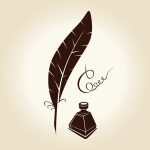The particular method of performing taḥnīk, Ibn Ḥajar (may Allāh have mercy on him) elucidates in Fatḥ al-Bārī (his commentary on Saḥīḥ al-Bukhārī) is that taḥnīk is to chew something, put it in the mouth of the infant and rub his palate with it. And it is best to perform it with ripe and sun-dried dates (this is known as al-tamr in Arabic, and it is what the Messenger of Allāh utilized). If that is not possible, ripe and soft dates (al-ruṭab) may be used. If not, anything sweet may be used, and honey is preferred. (See Fatḥ al-Bārī, 9: 588).
Taḥnīk is a sunnah of the Prophet Muhammad (peace be upon him). It should be performed on the same day the infant is given birth to. (Ibid) The Prophet (peace be upon him) performed tahnīk on ʿAbdullāh b. al-Zubayr (may Allāh be pleased with him) when he was born. This is mentioned in the subsequent narration from Imām al-Bukhārī:
عن أسماء رضي الله عنها أنها ولدت عبد الله بن الزبير فأتت به النبي صلى الله عليه وسلم فوضعته في حجره فحنكه بتمرة ، ثم دعا له وبرَّك عليه
“It is reported from Asmā (may Allāh be pleased with her) that she gave birth to ʿAbdullāh b. al-Zubayr, thereafter she brought him to the Prophet (peace be upon him) and put him in his lap. So he (the Prophet) performed taḥnīk with a date, thereafter prayed for him and supplicated for blessings (barakah) for him.”
(Saḥīḥ al-Bukhārī, 3619)
A similar incident also occurred with the child of Abū Mūsā al-Ashʿarī (may Allāh be pleased with him). (ibid, 5045).
Taḥnīk may be performed by any pious male or female, as Imām al-Nawawī has stated in his commentary on Saḥīḥ Muslim. (Sharḥ al-Nawawī ʿalā Saḥīḥ Muslim, Ḥadīth 2144).
Along with pleasing Allāh and following the Messenger (peace be upon him), taḥnīk provides health benefits as well.
Placing a ‘sugary substance’ inside the mouth of a new born baby dramatically reduces pain sensation and heart rate.
An interesting scientific medical study, published in the British Medical Journal (No 6993,10 June 1995), proved the benefit of giving a newborn child sugar, in order to reduce the feeling of any painful procedure like heel pricking for a blood sample or before circumcision.
The study, entitled ‘The analgesic effect of sucrose in full term infants: a randomised controlled trial’, was done by Nora Christopher Wood, Gillian Griffiths and Malcolm Levene, in the post-natal ward in the Leeds General Infirmary in England. 60 healthy infants of gestational age 37-42 weeks and post-natal age of 1-6 days, were randomised to receive 2 ml of one of the four solutions: – 12.5% sucrose, 25% sucrose and sterile water (control).
The first group of thirty babies received Sugar syrup before a routine blood test (heel pricking, which is usually painful) done to detect jaundice. The other 30 babies were given only sterile water as a control group. Placing 2 ml of a 25% or 50% sucrose solution on the tongue before pricking the heel significantly reduced the crying time, compared to babies who got water. In addition, their heart rate returned to normal more quickly. The stronger sugar solution had the greater effect, crying reduced further with increasing concentration of sucrose. From which we may conclude that sucrose (sugar), placed on the tongue may be useful and safe form of analgesia for use with newborn infants.
Blass and Hoffmeyer also showed that 12% solution of inter-oral sucrose significantly reduced the duration of crying in newborn babies subjected in new heel pricking, or circumcision. This study was reported in the Independent newspaper (Friday, 9 June 1995) as well as in the British Medical Journal article. (https://fountainmagazine.com/…/Relief-Of-Pain-A-Medical-Dis…).

